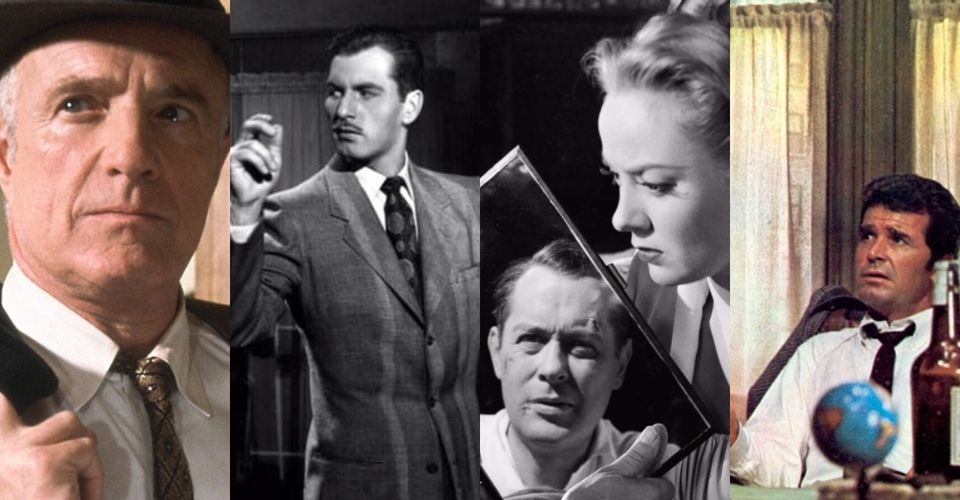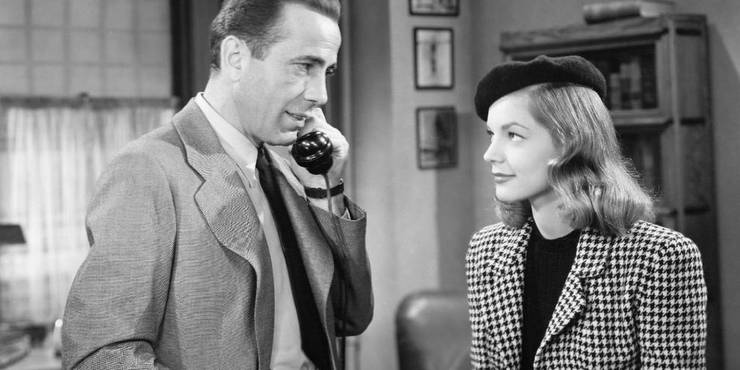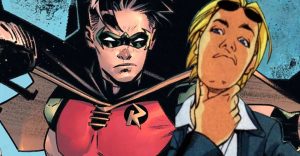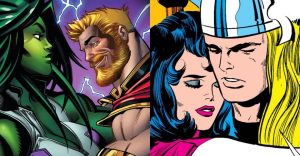10 Best Raymond Chandler Adaptations, Ranked By IMDb

Author Raymond Chandler set the standard for hard-boiled crime novels in the 1930s and ’40s, and his many novels and short stories paved the way for the film noir genre. His stories often feature shifty private detectives, femme fatales, rough and tough underworld criminals, and classic mystery storylines.
Many of Chandler’s works have been adapted into movies, and some of them have become classics of cinema. While some adaptations of Chandler stories don’t do justice to their source material, plenty of them match Chandler’s writing for drama and suspense, are fondly regarded by Chandler fans and movie buffs alike, and have garnered high scores on IMDb.
10 Poodle Springs (1998) – 6.1

Poodle Springs was the last novel that Chandler worked on before his death in 1959. Though the book went unfinished for decades, it was eventually published and then adapted into a film. The story follows Chandler’s classic hero Phillip Marlowe as he gets mixed up in blackmail plot amongst the upper crust.
Though the TV movie isn’t as well remembered as other adaptations, the film still has redeeming qualities including a spirited performance from actor James Caan. The film is set in the original time period of the story and does a great job of recreating the look of the early 1960s.
9 Marlowe (1969) – 6.4

Marlowe attempted to show that the works of Raymond Chandler still had value a decade after the author’s death. The film modernizes the Marlowe character and puts him in contemporary time with a story ripped straight from the pages of Chandler’s novel The Little Sister.
The film was hit or miss but the cast of James Garner as Marlowe and a small role by Bruce Lee, elevates the film. Film had changed dramatically by the 1960s and it was a difficult task to make Marlowe a relevant character again. Though Marlowe struggled, it paved the way for a slew of adaptations in the 1970s.
8 The Brasher Doubloon (1947) – 6.5

The Brasher Doubloon once again found another actor playing Phillip Marlowe. Despite the inconsistency with casting, the film is a faithful adaptation of Chandler’s The High Window and sees Marlowe tailing a rich girl after she steals a part of her family’s fortune.
The film is classic noir and gives the subject matter all of the gravitas it deserves. Though George Montgomery doesn’t have the same charisma as other Marlowe actors, he does as serviceable job carrying the film. The story alone is strong enough to make it a good film, and the noir filmmaking elevates it as well.
7 The Falcon Takes Over (1942) – 6.5

Not all Raymond Chandler adaptions revolve around Marlowe, and The Falcon Takes Over was an entry in a long line of novels surrounding the Falcon character. The story follows the Falcon as he investigates a ex-wrestler who gets out of prison and stalks his girlfriend.
Though a similar detective story, the Falcon and Marlowe are different characters entirely and it makes for interesting viewing. Chandler’s Marlowe films are a lot more well remembered, but the Falcon series was a tremendous hit upon its initial release.
6 Lady In The Lake (1946) – 6.6

Lady in the Lake was another boilerplate adaptation but the story alone was enough to carry the film. Marlowe is hired to investigate a missing woman and he stumbles upon a conspiracy to commit murder.
The film featured a tight storyline and exciting noir action that had many fans returning to the theater to watch each Marlowe adventure. Robert Montgomery returned to the role of Marlowe and settled into the part nicely. Though the novel and film aren’t as well remembered as other adaptions, it was still a strong addition to the Chandler filmography.
5 Time To Kill (1942) – 6.6

Time To Kill was the first attempt at adapting Chandler’s The High Window and it succeeded where others failed. The film obfuscates the novel’s storyline somewhat and changes the lead character to no longer include Marlowe.
The changes only improved the film and allowed it to stand alone and not be compared to other Chandler adaptions. Though the story is mostly the same, the small changes it makes elevate the material and make it a more memorable adaption in general.
4 Farewell, My Lovely (1975) – 7.1

The 1970s saw a slew of Chandler adaptations and proved that he was still relevant as a source of inspiration years after his death. Farewell, My Lovely was yet another attempt to resurrect the Marlowe character and saw the P.I. searching for the wife of a recently paroled ex-convict.
Robert Mitchum as Marlowe was a surprising choice and added another dynamic to the character by making him an older gentleman. Mitchum is inspired as Marlowe and he is able to flesh the character out with his performance on screen. The film did an admirable job of setting Los Angeles in the 1940s and was a great tribute to the source material.
3 Murder, My Sweet (1944) – 7.6

Though they changed the name, Murder, My Sweet was Hollywood’s first attempt at the Chandler novel Farewell, My Lovely. Dick Powell plays a more affable version of Marlowe and it gives the film an interesting tone.
Chandler’s work was always tinged by humor and Murder, My Sweet is both dramatic and humorous in Chandler’s unique way. Though Hollywood would make other attempts to adapt the story, the first adaptation is fondly remembered as one of the great noir films of the time.
2 The Long Goodbye (1973) – 7.6

The 1970s were great years for Raymond Chandler, and it all started with The Long Goodbye. Legendary director Robert Altman presented a unique twist on the classic Chandler novel and presented something that was entirely new, yet classic in the Chandler oeuvre.
The film is a slick Hollywood production, but it doesn’t lack any of the grit that a hard-boiled story demands. Elliot Gould plays Marlowe and adds another dimension to the hero, updating him for the ’70s by playing him differently from the usually stoic interpretations of the ’40s. The film showed that Chandler was a timeless source of inspiration for each new generation of filmmakers.
1 The Big Sleep (1946) – 7.9

Though The Big Sleep wasn’t the first adaptation of a Chandler novel, it certainly became the measuring stick by which all other adaptions would be judged. The Big Sleep is Chandler’s most beloved novel and sees Marlowe involved in a complicated plot within a feuding rich family.
The pairing of Humphrey Bogart and Lauren Bacall made for screen gold and the direction of the film is top notch. Bogart had already made a name for himself in film noir, and The Big Sleep cemented his legacy as one of the greatest actors of all time.
About The Author

















